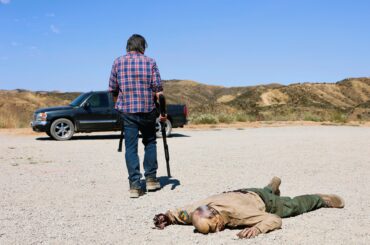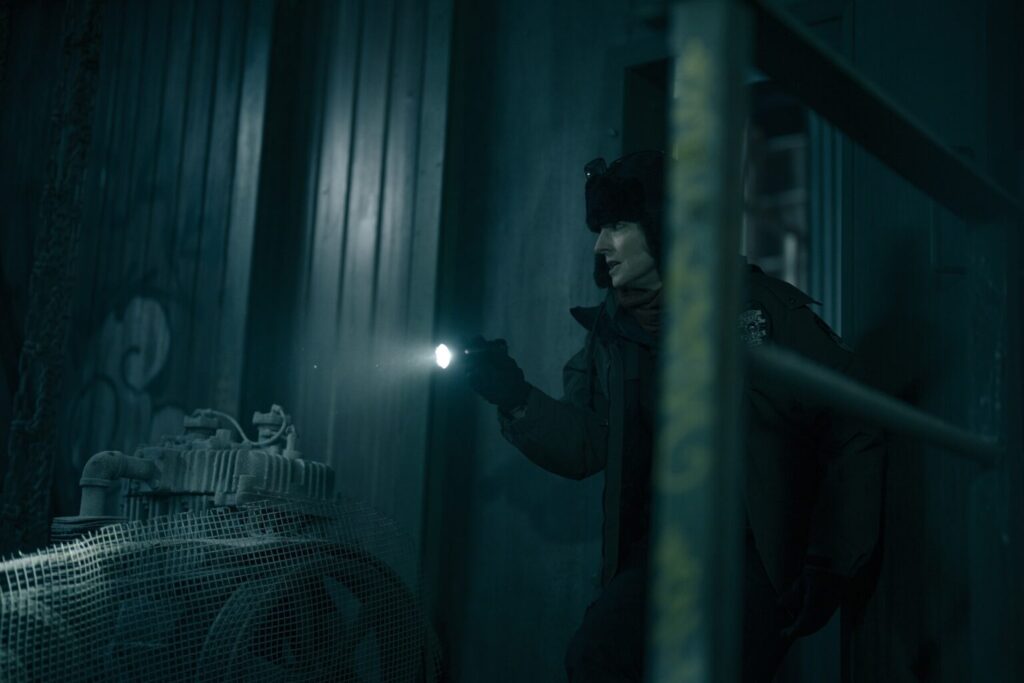
At the end of True Detective: Night Country, Liz Danvers (Jodie Foster) and Evangeline Navarro (Kali Reis) gotta go to hell to discover the truth. They literally go underground in Issa López‘s hit continuation of the HBO series. In the somewhat fantastical or spiritual season of the show, where the atmosphere is as mysterious as the crime, composer Vince Pope has an ethereal mood to enforce, not to mention damaged characters.
López and Pope previously worked together on Tigers Are Not Afraid. Together, the duo certainly know how to craft horror. The sound of the deceased is present in the True Detective: Dark Country score, which Pope recently discussed with Immersive Media.
That finale, it’s almost like a winter’s version of Dante’s Inferno. What notes did you want to hit at the end?
No, that’s right. That’s right. And it is interesting that the series almost sort of starts in one place, and then obviously in that final episode we end up in the underground caves and then chasing down the culprit or trying to figure out what it is that’s done these dastardly things at the beginning of the series. But it goes from that beginning of that last episode to then the end where we open up, not to give too many spoilers away.
I think probably people have seen a lot of it by now, but yes, it certainly transitions to a place of optimism or there’s a certain ambiguity there. I think in terms of for the audience, does she or doesn’t she carry on? So I don’t want to give too much away in that sense. There probably are a few people there who still haven’t watched things, but yeah, it certainly progresses from yes, the, and actually personified by the fact that we finally get some daylight. That’s the ultimate thing as well.
How the environment influence you? How’d you to fill these vast, cold spaces?
Well, again, it depends sometimes on the amount of movement you want in a scene. I mean, occasionally, there are moments when it’s important to have a stillness or a tension, and I mean, interestingly, I think there used to be, or maybe a few years ago, there was more of a propensity to be very melodic in terms of one’s work. But now we’re very used to, I think, as an audience, especially in moments of tension or horror moments, where we’re quite used to having sort of less is more.
So you’re not working with too many composers like John Williams doing scores for things like the thing, or there’s more horror scores that he did. There would be much more music in a sense. Nowadays we play with sort of set tones and atmospheres, and that’s where the interest lies. So yeah, I dunno if that answers your question, but
I’m happy to hear you bring up John Williams’ horror scores, his Dracula score is one of his best.
Yeah, absolutely. Absolutely. I mean, and that’s very much based… It comes from almost the 1950s from the evolution of scores like Psycho, where horror orchestration was an a character in and of itself. And so yeah, there’s been some very interesting stuff there, but I feel like we’ve moved away from that a bit of late.
What were some of the early experiments you were trying, maybe even ideas that didn’t make it into the show?
I got a guitarist who was sort of a specialist in bowing on the guitar. He used an actual violin bow, and it’s a very particular sound. It is a little bit akin to an Ebo. Ebo is a small instrument that you can use instead of a plectrum that resonates a guitar string. Anyway, it sounds similar to that. And he did some lovely stuff, very ambient, and you can’t quite figure out what the sound is. Okay, what is that?
Anyway, but presented it to the team, and Issa was like, “I don’t think so.” I mean, that’s the nature of the job. Sometimes you get things. I think also working in a studio on your own, you’re kind of like, oh, this is a great idea. And then two weeks down the line, you submit it and the person just goes, “No, no. I dunno what you’ve been doing in your room, but you need to get back to work or get some more daylight.”
So yeah, that hit the floor quite quickly. In the end, she was right. Maybe that wasn’t such a great idea.
What were your conversations with Issa about Navarra and Danvers? How did you both want to define them musically?
I think actually the themes that we talked about… There was a theme around Annie, who’s one of the characters is murdered. We don’t know why or how. And that was actually one of the characters whose themes were the most important because it was an echo from the past.
The Danvers and Navarra thematic material, in a sense, was less spoken about. It ould have been a little bit obvious or on the nose to do. We didn’t really go down the line of police procedural stuff. We talked more about other characters.
The choral is almost like the voices of the dead in the show. Did you and Issa talk about that idea? Obviously, you had a great vocalist with Tanya Tagaq.
Well, it’s interesting you say that. Certainly it wasn’t specifically said in that way, but I mean, just going back to Annie’s theme, which is this kind of vocal theme, it is sort of humming theme that I came up with that effectively is a theme of someone who is past. So yeah, I mean, actually it is reflective of that. It is literally the voices, if you like, from the dead. I’m glad that comes through because that was certainly one of the things that we talked about.
By the way, this is the second time I’ve done an interview where after watching something, I’m like, oh, who’s that incredible voice? And then I find out it’s Tanya.
Wow.
Did you see Slash/Back? She does great work in that.
Slash/Back? No, but I should certainly go out and find it.
A very good sci-fi horror movie. What is collaborating with that instrument of hers like? I mean, what she does is so unique.
Well, we were very lucky to have her. All the post-production was done in London, here in London, so she flew across to us. We did a three, four hour session at first. Obviously as a composer, you have in your mind, okay, I’d like this melody done this way. If you want to do some stuff along with that, great. If not, then let’s hear what you’ve got. I mean, I just remember the first time hearing her in the studio. I was like, oh my God, she’s absolutely amazing. Nothing else or no one else I’ve ever worked with.
Very quickly I would just say, “Do what you think is right,” and then I would take it away, edit it if it needed editing, cut it into play. There are some performers and musicians that it is kind of pointless to say, “Oh, can you do what I want you to do?” Because you don’t use somebody like that to do what everyone else does, because she’s such a unique voice and such a unique sound. She’s great, and her stuff is amazing.
Excellent. Vince, my last question for you, what did you find most fulfilling about your True Detective experience?
I work on a lot of TV stuff. I think it is lovely to work on something that actually, in some respect, really gelled with my sensibilities. It was an easy thing to work with in a sense, because the music is pretty much representative of what I would do.
I was sort of left to my own devices, or it’s close to that left to my own devices as I would do. It almost didn’t feel like a job. It felt like, okay, I’m writing some music, which is what I love to do for someone, and it’s being used. It’s just one of those lucky, serendipitous things that happened on True Detective.
True Detective: Night Country is available to stream on Max.


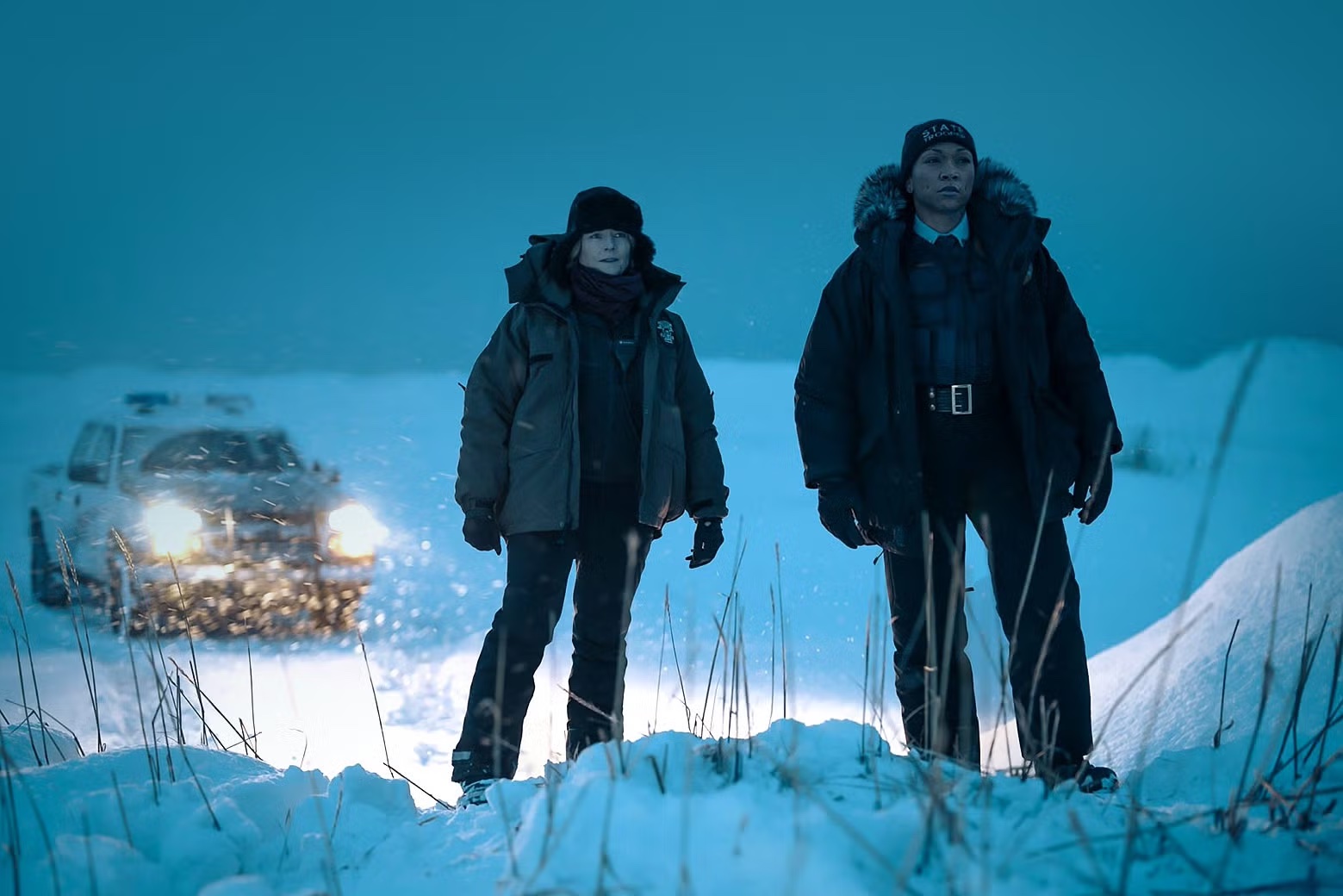
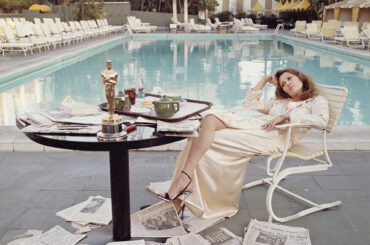
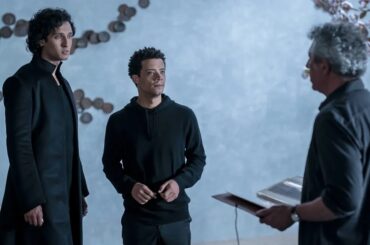
![‘Shōgun’ Cinematographer Sam McCurdy Breaks Down Episodes 9 & 10 [Part 1]](../wp-content/uploads/2024/07/hiro-370x245.jpeg)
